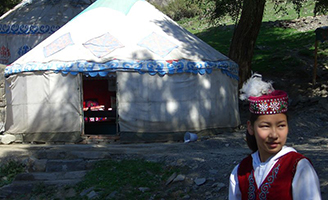China's Soft Power in Central Asia
By Nurlan Aliyev
December 19, 2019, the CACI Analyst
On October 17-18, 2019, the 7th China-Central Asia Cooperation Forum, was held in Nanning, Guanxi province. The goal of the Forum was to further strengthen ties between China and the countries of Central Asia. Aside from its economic and security related interests in the region, China is also hoping to improve its image with the help of soft power influences, among populations where Sinophobic sentiments are strong. Despite several reports and information on Chinese projects with this aim, the question remains how effective China’s soft power in Central Asia really is.

CACI Analyst, May 13, 2015
Contents
Analytical Articles
PAKISTAN AND AFGHANISTAN-INDIA COOPERATION, by Sudha Ramachandran
TURKEY, ARMENIA, AND THE POLITICS OF GENOCIDE RECOGNITION, by Emil Souleimanov
KAZAKHSTAN TO REFORM ITS CULTURAL SECTOR, by Rafis Abazov and Andrey Khazbulatov
WILL TURKISH STREAM COMPETE WITH THE SOUTHERN GAS CORRIDOR?, by Natalia Konarzewska
Field Reports
REPUBLICANS STRENGTHEN POSITION IN RESHUFFLED GEORGIAN GOVERNMENT, by Eka Janashia
KYRGYZSTAN TO HOLD ANOTHER CONSTITUTIONAL REFERENDUM, by Arslan Sabyrbekov
PRESIDENT SARGSYAN AND COUNTERPARTS COMMEMORATE ARMENIAN GENOCIDE, by Erik Davtyan
AZERBAIJAN CRACKS DOWN ON ACTIVISTS AHEAD OF EUROPEAN GAMES, by Mina Muradova
Kazakhstan to Reform Its Cultural Sector
By Rafis Abazov and Andrey Khazbulatov (05/13/2015 issue of the CACI Analyst)
In his presidential election campaign, Kazakhstan’s President Nursultan Nazarbayev pledged special attention to cultural policy through implementation of the Concept of Cultural Policy, envisioned to streamline the country’s policies on culture, cultural education and arts to strengthen what he calls “the genetic [cultural] code of the nation.” In introducing this Concept, Kazakhstan’s government emphasizes cultural policies despite the current financial crisis and significant budget cuts due to falling oil prices in the international market. But will reforming its cultural sphere deliver expected outcomes and results?





 Silk Road Paper S. Frederick Starr,
Silk Road Paper S. Frederick Starr,  Book Svante E. Cornell, ed., "
Book Svante E. Cornell, ed., "